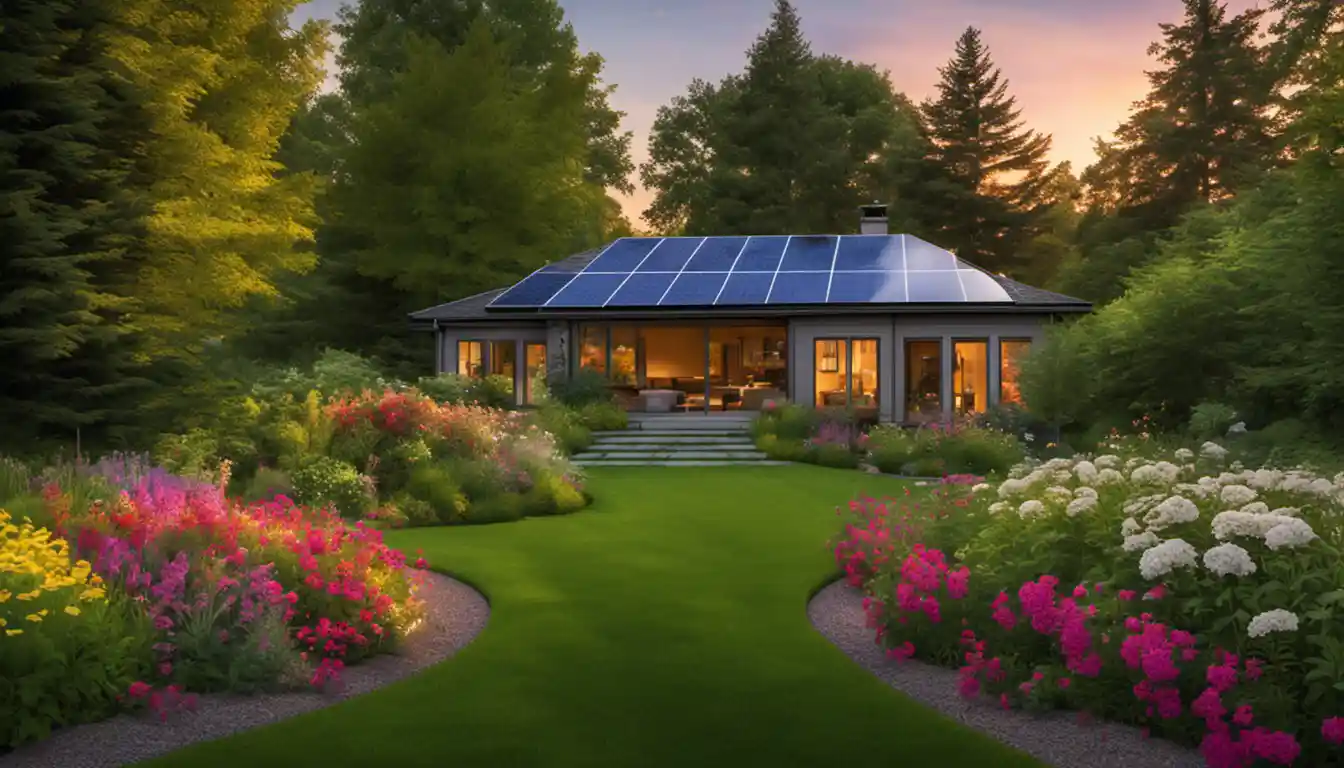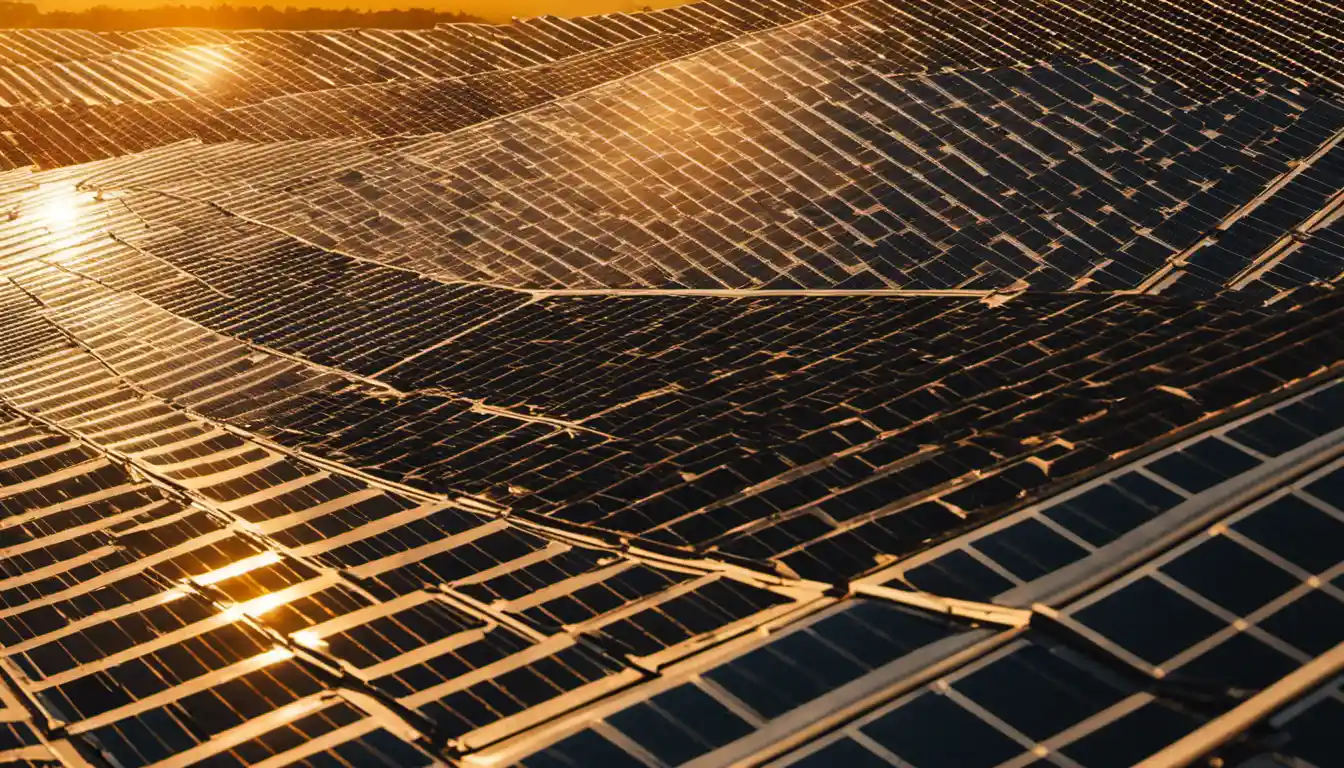Understanding Solar Panels and Their Production Capacity
The number of solar panels needed to generate 900 kWh per month can vary based on the specific panel’s wattage and the amount of sunlight it receives. However, using an average solar panel rating of 250 watts, you would need about 28-30 solar panels to generate 900 kWh per month, assuming 5 peak sunshine hours per day.
What Is a Solar Panel?
A solar panel is a technology that harnesses sunlight—the most abundant energy resource on earth—and converts it into electricity. Think of it as a big brother to your calculator’s little solar strip. Embedded with photons, these panels intend to liberate electrons from atoms to generate a steady flow of electricity.
How Much Power Can a Solar Panel Produce?
Each solar panel’s energy production depends on its wattage, efficiency, amount of sunlight reception, and the angle at which the sunlight hits the panel. On average, a typical home solar panel produces around 270-320 watts of power, but this can fluctuate based on the factors mentioned above.
Approach to Calculating the Number of Solar Panels
Each household requires a different number of solar panels based on its energy consumption, geographic location, and roof’s square footage. Let’s dig deeper into the process I employ to gauge this information.
Prerequisites: Knowing Your Energy Requirements

Before diving into calculations, have a thorough understanding of your home energy requirements. You can do this by examining your electricity bill—which measures your energy usage in kilowatt-hours (kWh)—for the past 12 months. This will give us your annual electricity usage.
Step 1: Determining Your Energy Usage
Now onto the first step. Let’s say you need 900 kWh per month, which equals 10,800 kWh annually. But, of course, not every day gets optimal sunlight. So for a more accurate result, divide your annual requirement by the number of days in a year; that’s 365. The result will be your rough daily kWh requirement.
Step 2: Understanding the Sunlight Exposure Your Home Gets
This step largely depends on the number of peak sunlight hours your premises receives daily. The number of sunlight hours fluctuates based on your geographic location and the current season.
Step 3: Assimilating Energy Production of Solar Panels in Your Area
The subsequent stage is understanding the production capacity of a panel. Usually, solar panels come with a defined wattage, most commonly around 250 watts. Recognizing your solar panel’s wattage and total peak sunlight hours will help you figure out daily energy output.
Step 4: Concluding the Number of Solar Panels You Need
To get the actual number of solar panels required for your usage, divide your daily kWh requirement by the daily energy output of a single panel. For more in-depth understanding, you can visit our detailed explanation at /calculate-kwp-solar-panel.
Case Study: How Many Solar Panels for 900 kWh Per Month?

Applying the Steps: Calculation Breakdown
Let me illustrate this with a real-life example. Suppose your average monthly electricity consumption is around 900 kWh. The average solar panel’s energy production (taking a moderate 250W panel) in an area with around 5 peak sunlight hours would look something like this: 250 watts x 5 hours = 1.25 kWh. If you tally this with your daily requirement (which comes around 30 kWh per month), you would need approximately 24 panels.
Result: Minimum Number of Solar Panels for 900 kWh Per Month
However, it’s always wise to have a little buffer. Therefore, for a safe side, around 28-30 panels would be an optimal choice for a house with a usage of 900 kWh per month.
And voila! There you have it, folks, this is the process of working out “how many solar panels do I need for 900 kWh per month.”
Factors Influencing Number of Solar Panels
Although we’ve covered the basic approach, remember that additional elements come into play, such as geographical location, solar panel efficiency, size and direction of your roof, as well as your home’s overall energy efficiency.
Difference in Number Based on Type of Residence
While the given calculations provide a robust estimate, the actual number can differ based on your residence type. For instance, a 3-bedroom house might need less than 30 panels, while a bigger house might demand more. Again, our page /calculate-kwp-solar-panel will assist you more thoroughly.
Cost Considerations for Solar Panel Installation

Evaluating the cost of going solar is essential. The average cost per watt in the U.S. is around $3. So a system enough to support a consumption of 900 kWh could cost you upwards of $20,000. But remember, the long-term energy savings often exceed this initial setup cost.
Key Takeaways
It’s essential to acknowledge the various factors when calculating “how many solar panels do I need for 900 kWh per month”. And while the initial costs might appear high, remember that solar energy is an investment for your future, economically and environmentally.
Frequently Asked Questions
Can You Run a House Entirely on Solar Power?
Absolutely! With the proper solar panel setup and energy-saving measures in place, it’s completely feasible to run your house entirely on solar power.
Can AC Run on Solar Panels?
Definitely. Solar power can efficiently run air conditioning systems, though it requires a more substantial solar panel setup due to the large power draw of AC units.
In conclusion, with careful planning and a bit of math, owning a solar-powered home isn’t just achievable—it’s the future. Empower yourself today, reduce your carbon footprint, and join the green revolution. Ready to soak up the sun?



